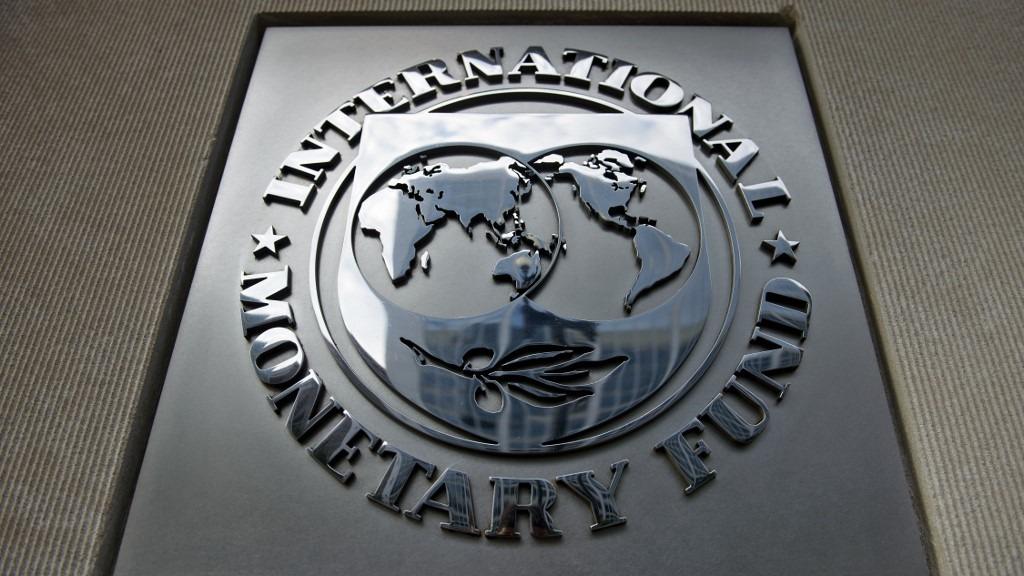 In this file photo taken on June 30, 2015 a logo is seen outside the headquarters of the International Monetary Fund in Washington, DC. (BRENDAN SMIALOWSKI / AFP)
In this file photo taken on June 30, 2015 a logo is seen outside the headquarters of the International Monetary Fund in Washington, DC. (BRENDAN SMIALOWSKI / AFP)
WASHINGTON - The International Monetary Fund (IMF) is expected to revise down the growth forecast for the Asia and Pacific region in a revised update to its World Economic Outlook (WEO) later this month, a senior IMF official said Tuesday.
First quarter GDP growth turns mostly on the downside, with high-frequency indicators for April and May point to severe disruptions in the second quarter. China appears to be the main exception.
Geoffrey Okamoto, IMF First Deputy Managing Director
"First quarter GDP growth turns mostly on the downside, with high-frequency indicators for April and May point to severe disruptions in the second quarter. China appears to be the main exception," IMF First Deputy Managing Director Geoffrey Okamoto told reporters at a virtual roundtable.
"Some countries also have had difficulty containing the pandemic spread, which has implications for their own economic outlook," said Okamoto, whose appointment as the multilateral lender's second-highest ranking official took effect in March.
ALSO READ:World Bank sees global economy shrinking by 5.2% in 2020
Noting that the IMF is going to release an update to the WEO on June 24, Okamoto said that "we expect to revise down materially reflecting the mainly longer-than-expected lockdowns and increasingly negative global trade spillovers, partially offset by large stimulus in several countries."
In the latest WEO report released in April, the IMF projected growth in Asia to stall at zero percent in 2020 due to the COVID-19 pandemic, the lowest growth since the 1960s. China is expected to see moderate growth of 1.2 percent, according to the report.
In response to a question from Xinhua, the IMF first deputy managing director said at the roundtable that one thing China benefited from was "very clear, decisive action early on" to contain the spread of coronavirus within its country, and also "acting very quickly to put in place the policy support measures that would allow things to stabilize."
ALSO READ: IMF: Ratings worries dampen interest in G20 debt relief
Noting that China is in the cycle a little bit earlier than other countries, Okamoto said that "we hope more countries end up in this category as time goes on," meaning that they could follow a path toward seeing growth on an "upward trend" in a few months.
"Obviously we're still in the thick of this, and in many areas, there are economies that are just starting to reopen as we speak. And some of them haven't yet. So it's too early to judge for many of them," Okamoto said.
READ MORE: IMF says China's experience in virus fight offers valuable lessons
Changyong Rhee, director of the IMF's Asia and Pacific Department, who also joined the roundtable, said as China implemented and started to ease lockdown policy a lot earlier, China's first quarter performance was in line with IMF expectation, but for many other Asian economies, the first quarter numbers were worse than expected.
For the second quarter, Rhee said that China also "cannot be immune from" the global trade slowdown, while noting that China's economy seems to "turn around" in general, even though at a low level.
READ MORE: Poverty-alleviation goal achievable despite outbreak
Meanwhile, IMF Managing Director Kristalina Georgieva on Tuesday urged countries to recognize the importance of global trade amid the COVID-19 pandemic and guard against a "dramatic retreat" from globalization.
Noting that inequality tends to go up after a pandemic, the IMF chief said at a virtual event held by the US Chamber of Commerce that "we must put this squarely on our radar screen and recognize the importance of global trade in contributing to lower costs, higher incomes and lower levels of poverty."
There would be a natural tendency after this pandemic for countries to turn inwards to build health security and build more independent operations but we must guard against a dramatic retreat from globalization.
Kristalina Georgieva, IMF managing director
"There would be a natural tendency after this pandemic for countries to turn inwards to build health security and build more independent operations," Georgieva said. "But we must guard against a dramatic retreat from globalization."
The IMF managing director said 170 countries -- almost 90 percent of the world -- will be worse off with lower per capita income by the end of 2020.
"Never in our history have we seen such a tremendous reversal of fortunes for so many," she said.
In mid-April, the IMF projected in its World Economic Outlook that the global economy is on track to contract by 3 percent in 2020. Georgieva said in May that the multilateral lender would "very likely" further cut global growth forecasts, as COVID-19 continues to sweep the world.
Noting that governments have rolled out fiscal measures totaling US$9 trillion globally, Georgieva said that the massive measures have provided a lifeline to many businesses, calling them "well-targeted and well-thought through."


